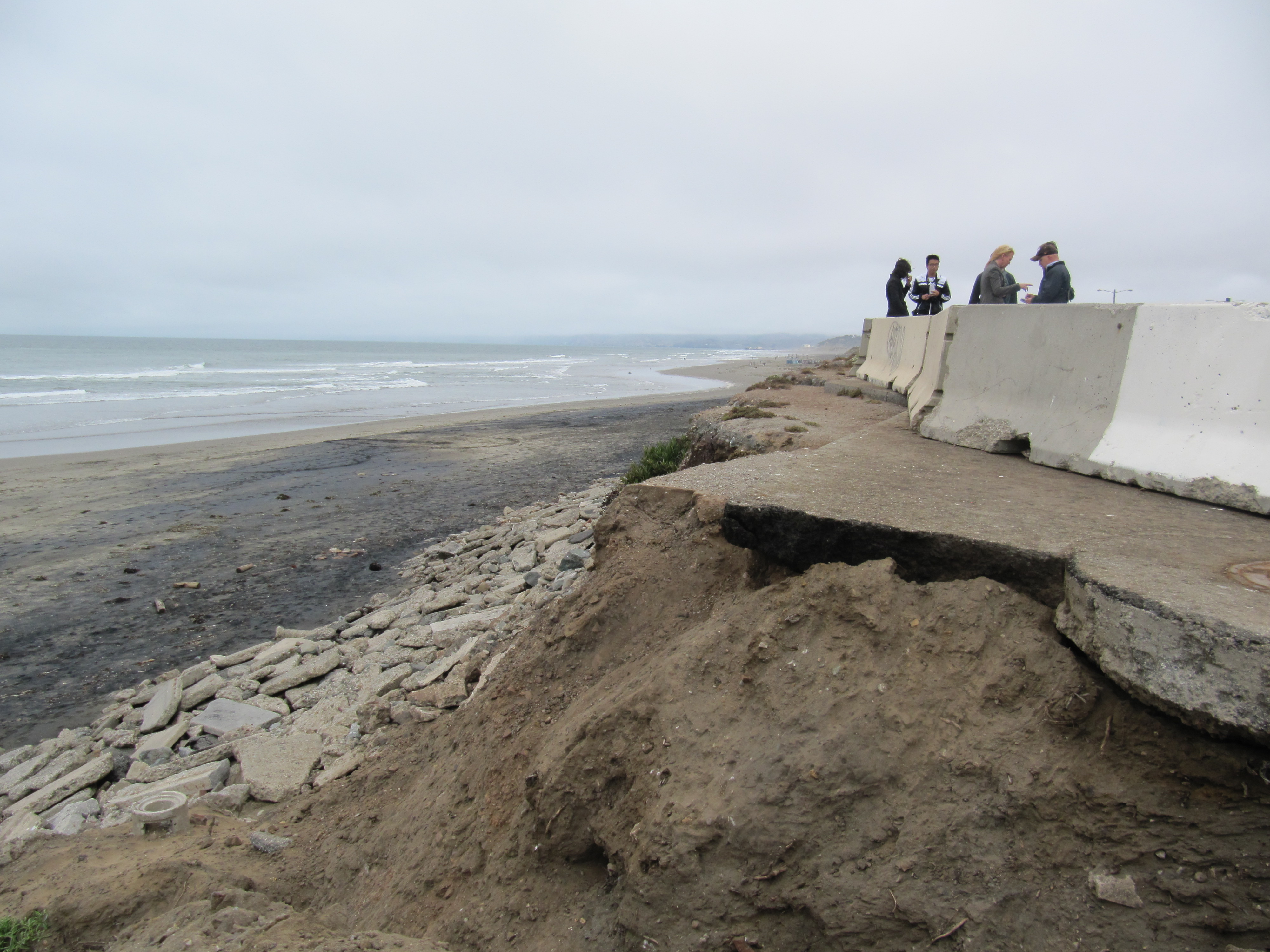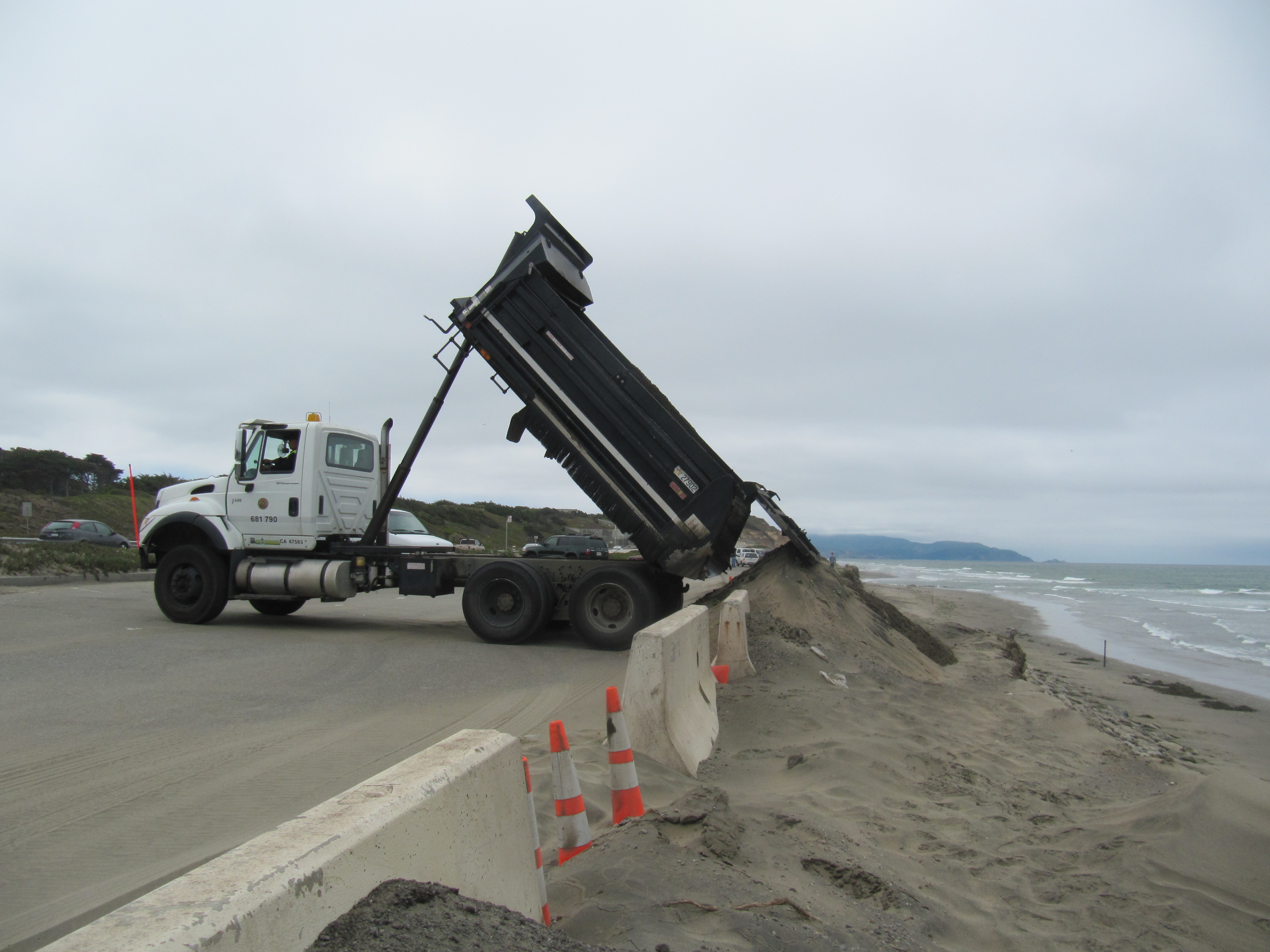Pencil-ready: Funding comes through for Ocean Beach adaptation studies

As an Army Corps of Engineers dredge dumped sand offshore, a crowd of politicians, representatives from local and federal agencies, business owners and volunteers gathered in a crumbling parking lot on Thursday to voice their support for the Ocean Beach Master Plan, a sweeping project to prepare for sea level rise and stem erosion on San Francisco’s western shore.
Project manager Benjamin Grant said that with more than a million dollars in grants now secured, the San Francisco Planning and Urban Research Association (SPUR) is ready to get down to the nitty-gritty details of how to implement the plan, which was officially released in June.
“There’s a lot of work that goes into taking something from a big visionary idea to a project that’s actually in the pipeline at a public agency,” Grant said.
Some smaller elements of the plan will happen quickly, without much bureaucratic shuffling (such as adding medians to a nearby street, which was tacked on to an existing paving project), but others will take decades.

Take the Great Highway — “the finest stretch of highway ever constructed” (at least, as it was touted in 1929) — now a road frequently closed by blowing sand and encroaching erosion. The Plan calls for a section of the road to be re-routed away from the coast, what generals like to call “strategic withdrawal” and urban planners refer to as “managed retreat.” That’s dozens of years down the line. Meanwhile, life (and erosion) goes on, and stretches of the road will be repaved beginning this winter.
“It’s going to be quite a number of years, if not decades, before the full process of closing that stretch of road would be implemented,” Grant said. “So it’s not worth not repaving it today.” Even so, a portion of the Great Highway had been closed for sand removal even as officials gathered for Thursday’s event.
[module align=”left” width=”half” type=”pull-quote”]”You just cannot fight nature. You’ve gotta respect it.”[/module]
San Francisco Mayor Ed Lee thanked the host of people who had a hand in crafting the plan, and even threw in a shout-out for a threatened coastal denizen, the snowy plover, but he tempered his congratulations with a reminder about the long process ahead.
“We do have to go through our governmental processes of adoption and review, and make sure that the ideas here also meet the various legal requirements that we’re obligated to carry forth on behalf of the public,” he said. On the other hand, he acknowledged what he’d learned working at San Francisco’s Department of Public Works. “You just cannot fight nature. You’ve gotta respect it,” he said.
Grant says the entire Ocean Beach Master Plan, closely watched as a test case for coastal cities pondering sea rise strategies, will cost about $350 million to implement over 40 years.
2 thoughts on “Turning the Tide at Ocean Beach”
Comments are closed.

Whoa. This is real. Imagining hiking there in 50 years and seeing bits of asphalt under dunes
That’s actually happened before. I talked to Bill McLaughlin from the Surfrider foundation yesterday, and he said down near Sloat, those boulders were covered with sand and dune plants, but it’s all been eroded away. He has a blog on erosion at Ocean Beach: http://sloaterosionob.blogspot.com/, including a history of erosion there: public.surfrider.org/files/a_history_of_coastal_erosion_at_ocean_beach_0412.pdf